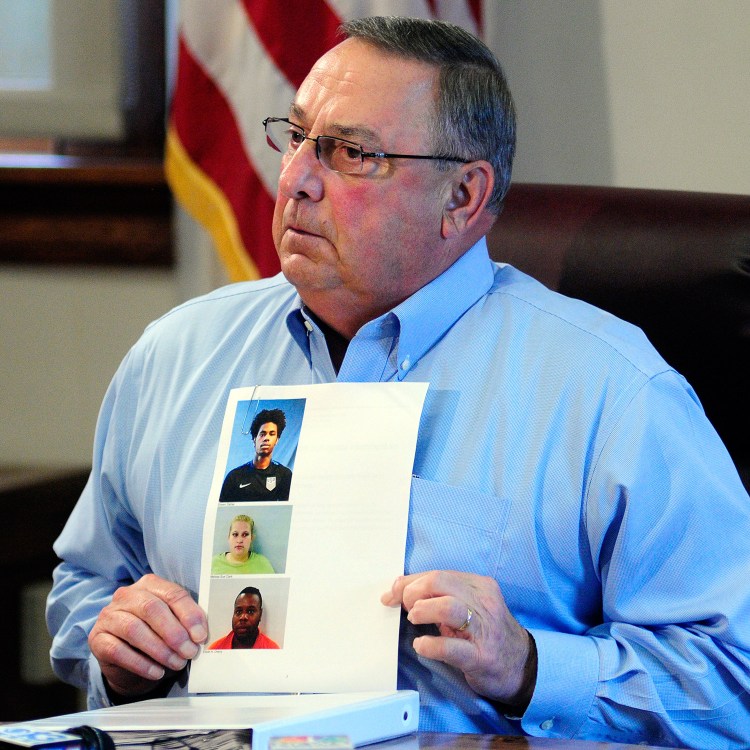As Gov. Paul LePage faces increasing criticism in Maine for making obscene and threatening remarks toward a state legislator, he continued to blame the state’s opioid epidemic on black and Hispanic people at a governors’ conference on Monday.
LePage’s comments at the Conference of New England Governors and Eastern Canadian Premiers in Boston were sharply condemned by other New England politicians who represent areas LePage says are the source of the influx of opioids into Maine.
“The heroin-fentanyl arrests are not white people,” LePage said, according to WBUR in Boston. “They’re Hispanic, and they’re black, and they’re from Lowell and Lawrence, Massachusetts; Waterbury, Connecticut; the Bronx and Brooklyn.”
LePage had previously singled out Waterbury and New York City. Leaders from the two Massachusetts cities he mentioned, as well as other politicians, lashed back at LePage. Here’s what they had to say:
Lawrence Mayor Dan Rivera: “The opioid crisis and the drug crisis in our communities is really serious, and we don’t have time for this type of nonsense, of name-calling and demonizing of people. I’m sure that the people of Maine would rather have their governor talk about how they can add more treatment beds and more detoxes and more counseling instead of picking on a small city in Massachusetts.”
Lowell Mayor Edward Kennedy: “It would be much more productive if the governor of Maine would just work together with other communities rather than to point fingers down toward the Merrimack Valley as that being the source of his problem, or to single out a certain ethnic group.”

Connecticut Gov. Dan Malloy: “This is not a racial issue. More white people are dying from abuse. … It is a great disservice to look at this as a racial issue. It is not. It should not be confused as one.” Malloy also joked, in reference to LePage’s statement that he would like to point a gun at a state legislator’s face, “He didn’t challenge me to a duel.” Malloy had said LePage “sounds like a racist” last week.
Massachusetts Gov. Charlie Baker: “This issue knows no neighborhood, it knows no race, it knows no class. It’s as pervasive as anything I’ve ever seen in my 30 years in health care.” Baker did add, however, that “Gov. LePage was a thoughtful and active participant in all the conversations that we’ve had here, and he didn’t challenge me to a duel either.”
Lowell City Councilor Jim Leary: “He’s pathetic and he’s ignorant. … Lowell is a great city with a lot of hard-working people living here, and it’s a shame you have an individual who’s an elected official representing the state of Maine who really doesn’t have a clue about what’s going on around him.”
Lawrence City Council President Kendrys Vasquez: “He has proven to lack leadership and showcase hatred with specific racial groups. … We need to send a message that this is a city that has to be respected.”
Former Lowell mayor and current City Councilor Rodney Elliott: “To me this epitomizes his ignorance and he owes the people of the cities of Lowell and Lawrence an apology.”
The responses to LePage prompted House Majority Leader Jeff McCabe, D-Skowhegan, to send a letter of regret Tuesday to the mayors of Lawrence and Lowell.
“We all know that heroin is ravaging all communities, regardless of their racial or ethnic composition,” McCabe wrote. “To assert otherwise is to distract from addressing the problem.”
He said LePage’s words “do not reflect the heart or soul of Maine people,” and lawmakers plan to continue working to solve the addiction crisis. “Our neighbors to the south are always welcome in Maine,” McCabe wrote, “and we hope you will make the drive up and spend some time with us both this year and long into the future.”
Send questions/comments to the editors.



